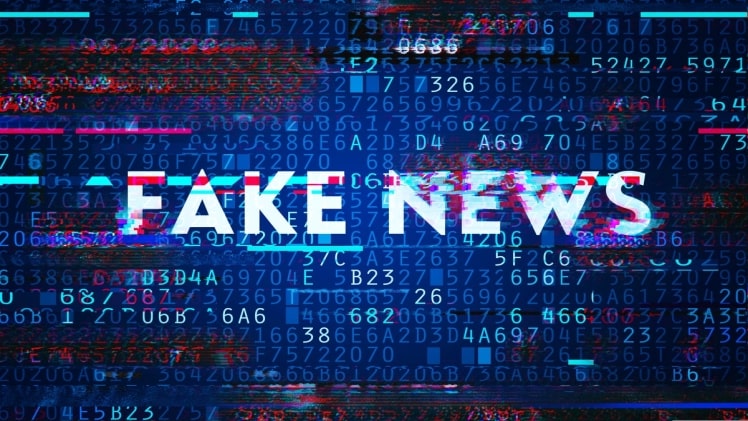Individuals are likely to encounter inaccurate and misleading information in real-time in today’s media platforms. Over the last several years, the distinction between reliable and untrustworthy news in public forums has been a regularly debated and oftentimes contentious issue.
Can social media be a trustworthy news source? Social media has become an almost inevitable aspect of our culture; can it be a reliable news source? No, not always. Here are some tips for distinguishing between misinformation & disinformation across social media, identifying “fake news,” and staying informed.
Distinguishing Misinformation From Disinformation
When it comes to “fake news” and how it spreads on social media, there are two types of misleading information to be wary of: misinformation and disinformation. Researchers discovered that these two forms of information frequently go viral because “information overload and users’ restricted attention span hinder social media’s ability to filter content on the basis of quality.”
What Does Misinformation Constitute?
The goal of the person or source disseminating the information distinguishes it from disinformation. False or misleading content, such as hoaxes, conspiracy theories, faked news, click-bait titles, or even satire, is characterized as misinformation. Misinformation is not intentionally designed to fool. Its goal is to mould or affect popular opinion on a certain issue.
What Does Disinformation Constitute?
Most of the same strategies that are used to promote misinformation may also be used to spread disinformation. Disinformation is intentionally designed to deceive. Individuals’ social media accounts, as well as company accounts, may propagate misinformation for a variety of reasons. It might be to improve the efficacy of their social media marketing, raise web traffic, attract new engagement for their page or business, elicit an emotional reaction, or create a diversion.
Disinformation may be problematic on social media since, as previously said, the vast volume of information available and the short attention spans of readers might allow it to spread unchecked.
Harms Of Fake News On Society
- Many Americans Believe False News Articles: many Americans cannot identify the difference between fake and real news. This can lead to misunderstanding and uncertainty concerning critical social and political concerns.
- Fake News Can Have an Impact on Your Grades: college and graduate school professors want you to use credible information sources throughout your research projects and articles.
- Bogus News Can Harm Your Wellbeing: There are several falsified news items on medical interventions and major diseases such as cancer and diabetes. If you believe these misleading stories, you might make decisions that are hazardous to your health.
- Fake News Makes It Difficult for People to grasp facts: Folks on the political right and left have separate ideas about what constitutes ‘fake news.’ Fake-news chaos, instead of driving individuals to leave ideological channels and the fringe, might very well be hastening the system of polarization: It’s driving users to drop a few outlets, simply ingest fewer details overall, and even cut out interpersonal interactions.
Fake News Identification
There are some questions you may ask yourself if you would like to become a little more media aware and then be able to detect false news. The answers to these questions will differ based on the sort of account you’re following.
Personal Accounts
Algorithms on social media platforms are geared for user participation and involvement, not for misrepresentation or disinformation. Here are a few things to ask to help you spot bogus news:
- Is the account who shared the message emotionally or professionally invested in these claims?
- What does the content want you to concentrate on?
- Is this information accurate?
- Is it trustworthy, or does it mention trustworthy sources?
- Why is it beneficial to the user who shared it?
Business And Professional Accounts
The social media accounts of professional organizations should ideally be informed about the company’s aims and beliefs. Along with the questions you’d ask about a private account, you should additionally ask:
- What am I doing to help my audience?
- Will this annoy anyone in my target market?
- What effect does this have on the reputation or values of my company?
- Is this current or meaningful to my target audience?
The Bottom Line
For business accounts on social media, purchase high-quality custom led lights to help in creating consistent and accurate content about your brand. For those that create content about their marine pets(like that goldfish in your aquarium), consider updating your filter media by buying bulk activated carbon for aquariums. Since social media is likely to elicit an emotional reaction, consider keeping your gun safe by getting storage from a gun’s safe manufacturer.
Countering false news requires knowing the intentions of other users as well as the network itself. Social media fake news may be inescapable. However, by thinking critically, you may assist to halt the spread.

